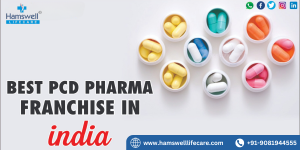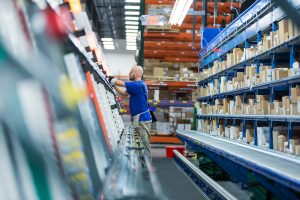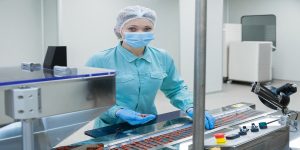In the rapidly evolving world of pharmaceuticals, the landscape of PCD (Propaganda Cum Distribution) pharma manufacturing is transforming at an unprecedented pace. This transformation is driven by innovative solutions that are setting new standards for efficiency, quality, and sustainability. As the demand for high-quality pharmaceutical products continues to rise, the importance of staying ahead in the PCD pharma sector cannot be overstated. In this comprehensive blog post, we will explore the latest advancements in PCD pharma manufacturing, with a special focus on how these innovations are shaping the future of the industry. Whether you are a stakeholder, a professional, or simply someone interested in the field, this post will provide valuable insights into the cutting-edge developments that are redefining PCD pharma manufacturing.
Revolutionizing Drug Formulation Techniques
The first major area of innovation in PCD pharma manufacturing is drug formulation. Traditional methods often involved lengthy and complex processes that could lead to inconsistencies in drug quality. However, recent advancements have introduced more sophisticated techniques.
For instance, nanotechnology has revolutionized the way drugs are formulated. By manipulating substances at the molecular level, nanotechnology ensures that drugs are more effectively absorbed by the body, enhancing their efficacy. Moreover, this technology allows for targeted drug delivery, which minimizes side effects and maximizes therapeutic benefits.
Another significant development is the use of bioavailability enhancers. These substances increase the rate at which a drug is absorbed into the bloodstream, making treatments faster and more effective. The top PCD company in Ahmedabad, for example, has been at the forefront of incorporating these enhancers into their product lines, leading to superior patient outcomes.
Cutting-Edge Manufacturing Processes
Innovative manufacturing processes are critical to the success of PCD pharma companies. The integration of automation and robotics in production lines has markedly improved efficiency and precision. Automation reduces human error, speeds up production, and ensures consistency across batches.
3D printing is another groundbreaking technology making waves in the industry. This technology allows for the precise creation of complex drug formulations and personalized medicine. With 3D printing, it’s possible to manufacture drugs tailored to an individual’s specific needs, paving the way for personalized healthcare solutions.
Additionally, continuous manufacturing processes have replaced traditional batch processing. Continuous manufacturing ensures a steady and streamlined production flow, reducing downtime and improving overall productivity. This method also enhances the scalability of production, making it easier for companies to meet increasing demand.
Enhancing Quality Control with Advanced Analytics
Quality control is paramount in the pharmaceutical industry, and advancements in analytical techniques are making it easier to maintain high standards. Real-time analytics and big data are now integral to the quality control process.
Using advanced sensors and machine learning algorithms, manufacturers can monitor production in real time. This real-time monitoring allows for the immediate detection and correction of any deviations from set quality standards, ensuring that only the highest quality products reach the market.
Moreover, predictive analytics can forecast potential issues before they occur. By analyzing historical data, these tools can predict when equipment might fail or when a batch might not meet quality standards, allowing for preemptive measures that save time and resources.
Sustainable and Green Manufacturing Practices
Sustainability is becoming increasingly important in PCD pharma manufacturing. Companies are adopting green practices to reduce their environmental footprint. This shift not only helps the planet but also meets the growing consumer demand for eco-friendly products.
One notable practice is the use of renewable energy sources in manufacturing facilities. Solar and wind power are being harnessed to run production lines, significantly reducing carbon emissions. Additionally, innovations in waste management ensure that manufacturing by-products are minimized and responsibly disposed of.
Green chemistry is another area of focus. By designing chemical processes that reduce or eliminate the use and generation of hazardous substances, companies can produce safer and more environmentally friendly pharmaceuticals. The top PCD company in Ahmedabad is a leader in implementing green chemistry principles, setting a benchmark for others in the industry.
Leveraging Digital Transformation
The digital transformation of PCD pharma manufacturing is another critical advancement. The adoption of digital tools and platforms is enhancing every aspect of the manufacturing process.
One significant aspect is the implementation of Internet of Things (IoT) devices. These devices collect and transmit data across the manufacturing ecosystem, providing insights that drive efficiency and innovation. IoT-enabled smart factories can optimize production schedules, manage supply chains more effectively, and ensure compliance with regulatory standards.
Furthermore, blockchain technology is being used to improve transparency and security in the supply chain. By providing an immutable record of transactions, blockchain ensures that every step of the manufacturing process is traceable and verifiable. This transparency builds trust and ensures the integrity of pharmaceutical products.
Improving Packaging and Delivery Systems
Innovations in packaging and delivery systems are also playing a crucial role in the PCD pharma sector. Smart packaging, for instance, is enhancing the way drugs are stored and delivered.
Smart packaging solutions include embedded sensors that monitor the condition of the drug throughout its journey from the manufacturer to the patient. These sensors can detect changes in temperature, humidity, and other environmental factors, ensuring that the drug maintains its efficacy.
Additionally, innovative delivery systems such as needle-free injectors and transdermal patches are improving patient compliance and comfort. These systems provide a painless and convenient way to administer drugs, which is especially beneficial for patients with chronic conditions who require regular medication.
Strengthening Regulatory Compliance
Regulatory compliance is a critical aspect of PCD pharma manufacturing. The industry is highly regulated to ensure the safety and efficacy of pharmaceutical products. Recent advancements in compliance technologies are helping companies navigate this complex landscape more efficiently.
For example, regulatory technology (RegTech) tools are streamlining compliance processes. These tools automate the collection and analysis of regulatory data, making it easier for companies to adhere to local and international standards. RegTech also helps in managing the extensive documentation required for regulatory approval, reducing the risk of human error.
Moreover, artificial intelligence (AI) is being used to predict regulatory trends and changes. By analyzing vast amounts of data, AI can provide insights into future regulatory developments, allowing companies to proactively adapt their strategies and ensure ongoing compliance.
Enhancing Collaboration and Partnerships
Collaboration and partnerships are vital for driving innovation in PCD pharma manufacturing. By working together, companies can share knowledge, resources, and expertise, leading to more significant advancements.
Strategic alliances with research institutions and universities are particularly beneficial. These collaborations foster innovation by combining academic research with practical industry experience. For example, the top PCD company in Ahmedabad has partnered with leading research institutions to develop cutting-edge drug formulations and manufacturing techniques.
Additionally, partnerships with technology companies are crucial for integrating new technologies into manufacturing processes. These collaborations enable pharma companies to leverage the latest technological advancements, such as AI, IoT, and blockchain, to improve their operations and product offerings.
Future Outlook: Embracing Continuous Innovation
The future of PCD pharma manufacturing lies in continuous innovation. As the industry evolves, companies must remain agile and open to new ideas and technologies. This mindset will enable them to stay ahead of the competition and meet the ever-changing needs of patients and healthcare providers.
Emerging technologies such as quantum computing and artificial intelligence will play an increasingly important role in drug discovery and development. These technologies have the potential to revolutionize the way drugs are designed, tested, and manufactured, leading to more effective treatments and cures.
Moreover, personalized medicine will become more prevalent, driven by advancements in genomics and biotechnology. This approach tailors treatments to an individual’s genetic makeup, offering more precise and effective therapies.
In conclusion, the advancements in PCD pharma manufacturing are transforming the industry, setting new standards for efficiency, quality, and sustainability. By embracing these innovative solutions, companies can improve their operations, deliver better products, and ultimately enhance patient care. The top PCD company in Ahmedabad exemplifies these advancements, leading the way in adopting cutting-edge technologies and practices. As the industry continues to evolve, continuous innovation will be key to staying at the forefront of PCD pharma manufacturing.





